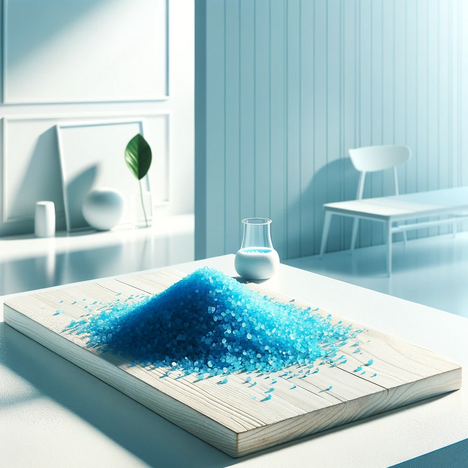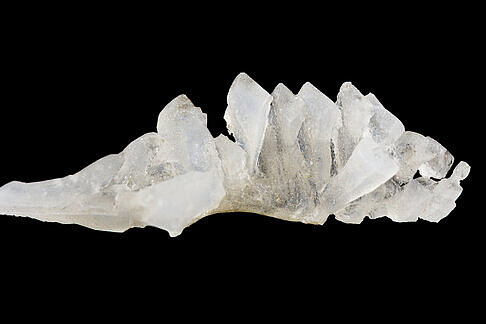Copper sulphate

What is copper sulphate?
Copper sulphate, chemically known as copper(II) sulphate, is an inorganic salt that occurs in various forms, with pentahydrate (CuSO4-5H2O) being the best known and most commonly used form. It is particularly known for its intense blue color and its versatile applications, including as a fungicide, algaecide, root treatment in wastewater treatment and as a trace element in pet food supplements.
Benefits of copper sulphate for dogs
Antimicrobial and fungicidal properties
One of the main benefits of copper sulphate is its ability to kill or inhibit the growth of a wide range of microorganisms. This makes it an effective treatment for certain skin infections and fungal infections in dogs, especially in cases where conventional therapies have failed or are not appropriate.
Food supplements
In small doses, copper sulphate can be used as a dietary supplement to prevent copper deficiency. Copper is an essential trace element that plays a key role in many physiological processes in dogs, including red blood cell formation, bone strength and immune system support.
Disadvantages and potential risks
Toxicity
Despite its benefits, copper sulfate carries serious risks, especially if used improperly or overdosed. Copper sulfate is toxic when ingested in large quantities and can lead to copper poisoning, which can cause symptoms such as vomiting, diarrhea, lethargy, jaundice and even death in severe cases.
Skin and eye irritation
Direct contact with copper sulphate can cause skin and eye irritation in dogs. Special care should be taken when applying to the skin or near the eyes to avoid irritation or injury.
Environmental effects
The use of copper sulphate, especially in outdoor areas, can also have environmental effects. Copper can accumulate in the soil and affect water quality, which in turn can harm wildlife.
A balancing act in dog care
Copper sulphate can be a useful tool in dog grooming in certain circumstances, particularly due to its antimicrobial and fungicidal properties. However, its use requires careful consideration and strict adherence to dosing guidelines to minimize the risk of copper toxicity or other negative side effects. In many cases, alternative treatments that carry fewer risks may be preferred to protect the health and well-being of our faithful companions.
If you notice any signs of hypersensitivity or poisoning in your dog, you should see your vet immediately. We are not a substitute for a vet, but we try to be as accurate as possible. Every dog reacts differently and we recommend you get a second opinion or consult your vet if in doubt.
Stay healthy and take good care of your four-legged friend!😊
Similar to Copper sulphate
Magnesium sulphate is a chemical compound of magnesium, sulphur and oxygen. It is known for its many uses, from agriculture to medicine to animal care. For dogs, magnesium sulfate can be used both...
Potassium nitrate (KNO3) is a naturally occurring mineral that is used in many industrial processes due to its properties. It is known for its role as an oxidizing agent in gunpowder as well as a...
Zinc sulfate is a chemical compound that contains zinc and sulfur and serves as a source of zinc in various applications, including as a dietary supplement for animals. Due to its soluble...
Ammonium chloride is a chemical compound of nitrogen, hydrogen and chlorine. It forms white crystals that taste salty-sour. Ammonium chloride occurs naturally in volcanoes, minerals and plants....



